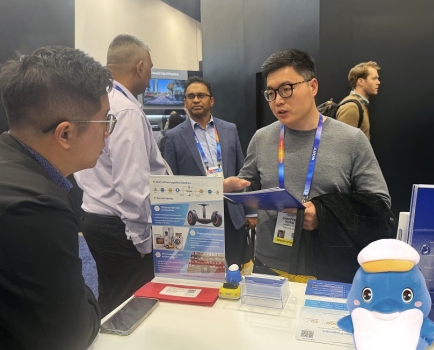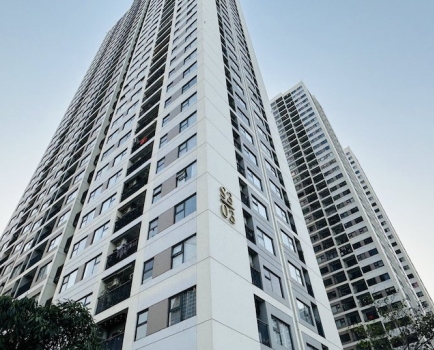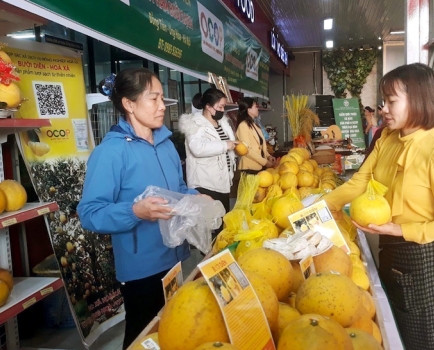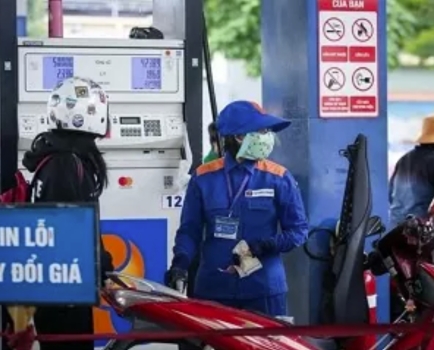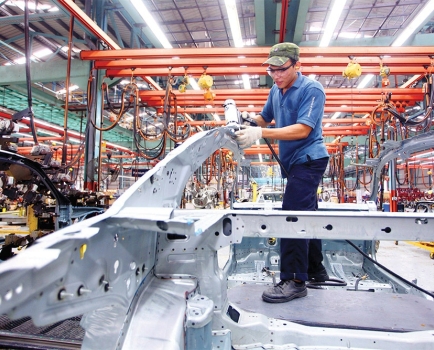Pharma firms debate reforms
Fri, 07 Jun 2019 15:07:00 | Print | Email Share:
With possible new changes in drug rules involving strict conditions for branded pharmaceutical production on the horizon, multinational corporations might find it harder to attend tenders of high-cost branded drugs.
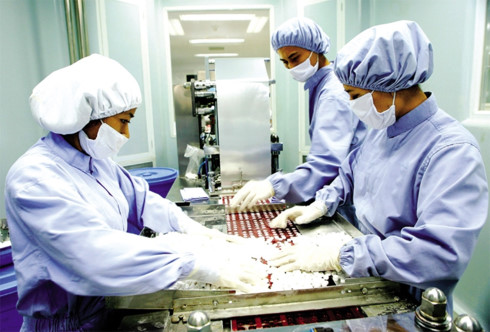
The Ministry of Health is being urged to take into consideration
the facilitation of outsourcing activities. (Photo: VIR)
Recently, representatives of multinational pharmaceutical corporations, including those from the Pharma Group of the European Chamber of Commerce in Vietnam (EuroCham) gathered at a heated meeting with the Ministry of Health (MoH) to propose changes in conditions for the outsourcing and production of brand-name drugs to facilitate their next steps of investment in Vietnam.
According to multinational corporations (MNCs), when they transfer technology of branded drugs to WHO GMP factories in Vietnam, they eye tenders of Group 1 of brand-name drugs.
“This is an important issue affecting our company’s business strategy,” said representative of a global corporation. “There are several meetings to discuss the possibilities of upgrading from WHO GMP to EU GMP. However, upgrading a factory through this process takes around three to five years, excluding inspection and licensing times by authorised EU agencies.”
She also proposed that brand-name drugs produced at WHO GMP facilities are recognised during the transition period to encourage corporations to produce branded drugs in Vietnam.
Representatives from EuroCham’s International Quality Medicines (IQMED) – Generic & Biosimilar also raised similar questions about the standards of outsourcing factories for brand-name drugs and possible incentives. IQMED now has members like Actavis International Ltd., Adamed Pharma, B.Braun Vietnam Co., Ltd., and Novartis (Singapore) Pte., Ltd.
“If an MNC buys some manufacturers in Vietnam, and then use them for drug outsourcing, do they enjoy incentives under current rules?” queried an IQMED representative. “Also, if MNCs have EU GMP factories abroad to produce branded drugs and then transfer technology of production to WHO GMP manufacturing facilities in Vietnam, will the drugs be listed as brand-name drugs?”
Meanwhile, a representative of EuroCham’s Pharma Group, which currently has 25 members such as AstraZeneca, Bayer Vietnam, Novartis Pharma, and Zuellig Pharma said that the equipment requirement is difficult for businesses to fulfil.
“For example, MNCs have drug manufacturing facilities outside Vietnam where equipment has been in use for 20-25 years, and this equipment is now rarely available in the market,” she said. “The MoH should consider the requirement to facilitate outsourcing parties.”
Along with that, Pharma Group also recommended that the MoH reconsider the requirement of pre-clinical and clinical documents for drugs outsourced in Vietnam, and those with circulation licenses in the country.
No changes expected
Discussions on the issue took place when the MoH sought comments for a draft circular guiding registration and circulation of outsourced pharmaceuticals. The draft is expected to make some changes to Circular No.23/2013/TT-BYT.
According to the draft, factories undertaking outsourcing of brand-name drugs must possess similar formulations, processing, and materials of EU GMP standards, as well as equipment to ensure quality and safety.
In response to questions, the leader of the MoH said, “Even if brand-name drugs are produced at WHO GMP manufacturing facilities in Vietnam, they are not considered brand-name drugs, meaning that they cannot join tenders of Group 1 of such items. In order to name branded drugs, they must be produced at EU GMP facilities in Vietnam.”
Regarding incentives, he said there is no difference in tax incentive treatments in domestically-owned and foreign-invested facilities conducting outsourcing in Vietnam, all being subject to VAT exemption. Currently, the MoH’s Drug Administration of Vietnam is working on the draft based on the proposals. Evidently, it is widely expected that there will be no change in the condition for EU GMP standards at the facilities where brand-name drugs are produced because of safety and quality reasons. With the affirmation, MNCs will have to find solutions for their future business strategies in Vietnam if they want to continue to compete in tenders of Group 1.
In the local pharma market, the main distribution channel is the hospital system, or the so-called ethical drugs channel (ETC), accounting for around 70 per cent, while the remainder is over-the-counter (OTC) drugs. Foreign players hold the majority of the ETC market due to ownership of brand-name drugs, which operate in a monopolistic manner and sell at high prices.
Together with the VAT exemption, currently, the cost of brand-name drugs is 10-20 times higher than generic products, thus bringing in high profit for MNCs. Because of these, any possible change in the regulations of brand-name drugs is prone to attract strong attention.
Growing interest
Vietnam is now available for many kinds of branded pharmaceuticals produced in third countries. MNCs tend to produce branded drugs in related nations to reduce costs and to tap into local advantages and Vietnam, where drug spending per capita rose 10.6 per cent on-year to an estimated $53.54 in 2018, and is forecast to increase further in the coming time, is among their targets. If the draft circular contains no changes as expected by MNCs, and obviously, there is potential for a race to upgrade factories among such corporations in Vietnam in order to meet the conditions.
With two-digit growth forecast in the next five years, reaching an estimated $7.7 billion in 2021 from the current $5 billion, Vietnam’s lucrative pharmaceutical industry continues to be on the radar of many MNCs.
Vietnam is likely to see strong business and investment activities from MNCs in the near future, driven by the enforcement of the EU-Vietnam Free Trade Agreement (EVFTA), which is expected to enter into force this year.
Last week, AstraZeneca announced a five-year investment of VND5 trillion ($220 million) for the 2020-2024 period in Vietnam during Prime Minister Nguyen Xuan Phuc’s visit to Sweden. The investment sum comes amid Vietnam’s growing demands to accelerate healthcare capacity development, research and development, and talent development.
Abbott Laboratories, which is a big player in the market holding a 51.7 per cent stake in Vietnam’s third-largest domestic drugmaker Domesco (DMC), is working with DMC on franchising some of its products to the latter. As planned by DMC, franchised products will contribute to the company’s revenue by 2020.
In similar moves, South Korea’s Daewoong has signed a co-operation agreement with Vietnam’s second largest publicly-traded drugmaker, Traphaco, in which the two sides agreed to work together in sole distribution of Daewoong products in Vietnam, technology transfer to help Traphaco produce Daewoong items at Traphaco’s Hung Yen factory, and in research and development activities.
Industry insiders said that MNCs are now expanding local production to reap the incentives from the country's supporting policies for domestically-produced pharmaceuticals and outsourcing, and to benefit from the Comprehensive and Progressive Agreement for Trans-Pacific Partnership (CPTPP), and EVFTA.
According to a VIR source, US-headquartered MSD Group is also co-operating with several drugs factories in Vietnam. It has developed a production plan in Vietnam for high-quality innovative drug products through contracts on processing, which has been approved by the MoH.
Meanwhile, B.Braun, Germany’s largest pharmaceuticals and medical equipment producer, has made several investments into Vietnam in the past. It plans to fund further, with a vision beyond 2020. It will also increase its workforce in Vietnam to meet expansion demands.
“The country has seen new European companies moving to Vietnam before the EVFTA is ratified, in order to prepare for these new opportunities. The same is true across several sectors and industries,” said Nicolas Audier, co-chairman of the EuroCham Vietnam. “Vietnam’s middle-class consumers are a magnet for European investors, and we know that there is strong and growing demand here for Europe’s products and services, from world-leading cars to cutting-edge medical devices, as well as innovative service sectors.”
By: VIR/VOV
---------------------------------------------
Same category News :



